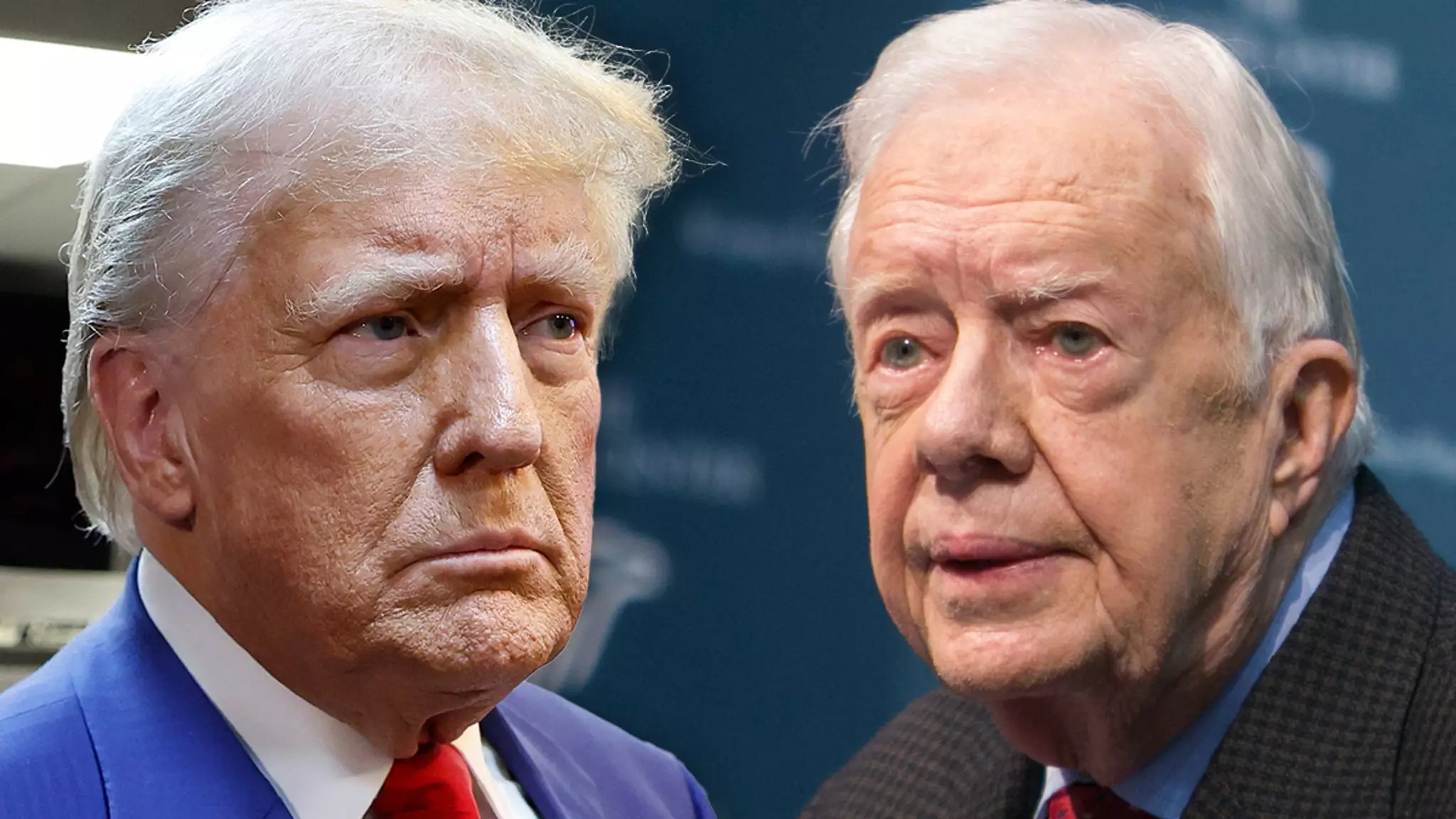In a surprising turn of events, Donald Trump took to his social media platform, Truth Social, to pay tribute to the late former President Jimmy Carter following his passing at the age of 100. Trump’s sentiments arrived soon after the news broke, highlighting a moment of reflection that is often overshadowed by political rivalries. The former president emphasized that those who have held the office understand the unique responsibilities that come with it, suggesting a begrudging appreciation for the challenges Carter faced during his presidency. His message was both a nod to Carter’s efforts to enhance the lives of Americans and an acknowledgment of the admiration that even those across the aisle might hold for the late president.
Jimmy Carter served as President of the United States from 1977 to 1981 during a tumultuous period marked by economic instability and a range of foreign policy challenges. His presidency was characterized by a commitment to human rights and diplomacy, notably the Camp David Accords, yet he often struggled with public perception due to the economic malaise of the late 1970s. This juxtaposition between his ideals and the realities of governance created a lasting debate regarding his effectiveness as a leader. Trump’s reflection on Carter’s presidency may seem contradictory given their earlier tensions, yet it underscores the fact that political legacies are nuanced and can evolve long after a leader’s tenure ends.
Interestingly, just a mere two months prior to his tribute, Trump publicly disparaged Carter in the context of contemporary politics. On Carter’s centenary, Trump remarked on Joe Biden’s presidency, branding it as the worst in history. In this context, he juxtaposed Biden’s negatives with Carter’s positives, calling attention to the contrast in leadership styles. Such comments reveal the complex dynamics of political discourse where tributes can often clash with critiques. Furthermore, it exemplifies how personal animosities can define discussions around political legacies, complicating straightforward assessments of historical figures.
Carter’s death has evoked responses from across the political spectrum, highlighting the transformative influence he had during and after his presidency. Tributes from former and current political figures illustrate a collective acknowledgment that, despite political affiliations, there is reverence for the values he stood for. Trump’s remarks also included condolences for Carter’s family, stressing the importance of unity even in times of grief. Such moments can serve as poignant reminders of the commonalities amid divisive politics, urging society to embrace compassion over rivalry.
As tributes continue to flow following Carter’s passing, it is clear that his contributions to American society and global diplomacy will remain influential for years to come. From his efforts to advocate for human rights to his post-presidency humanitarian work, Carter’s legacy is one that encourages reflection on the moral responsibilities of leadership. The contradictions in Trump’s previous comments and his current tributes highlight the complexity of political legacies and the necessity for ongoing dialogues about their implications in today’s political climate.
The world may remember Carter not just for his time in the Oval Office, but as a symbol of what it means to lead with compassion and integrity, offering lessons that are incredibly relevant for future generations.

